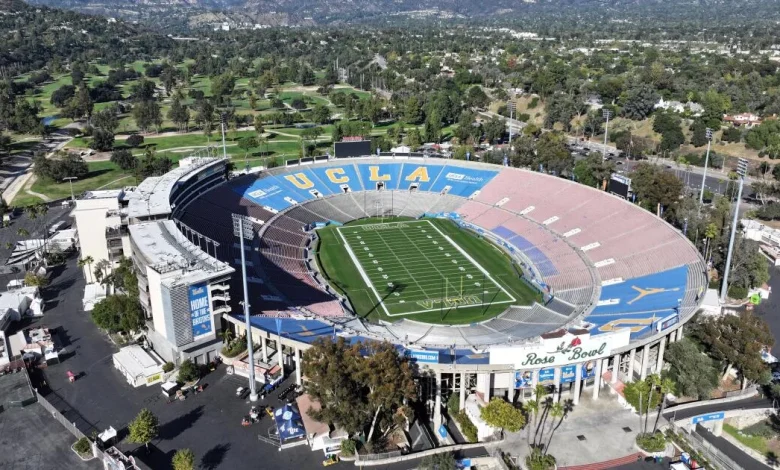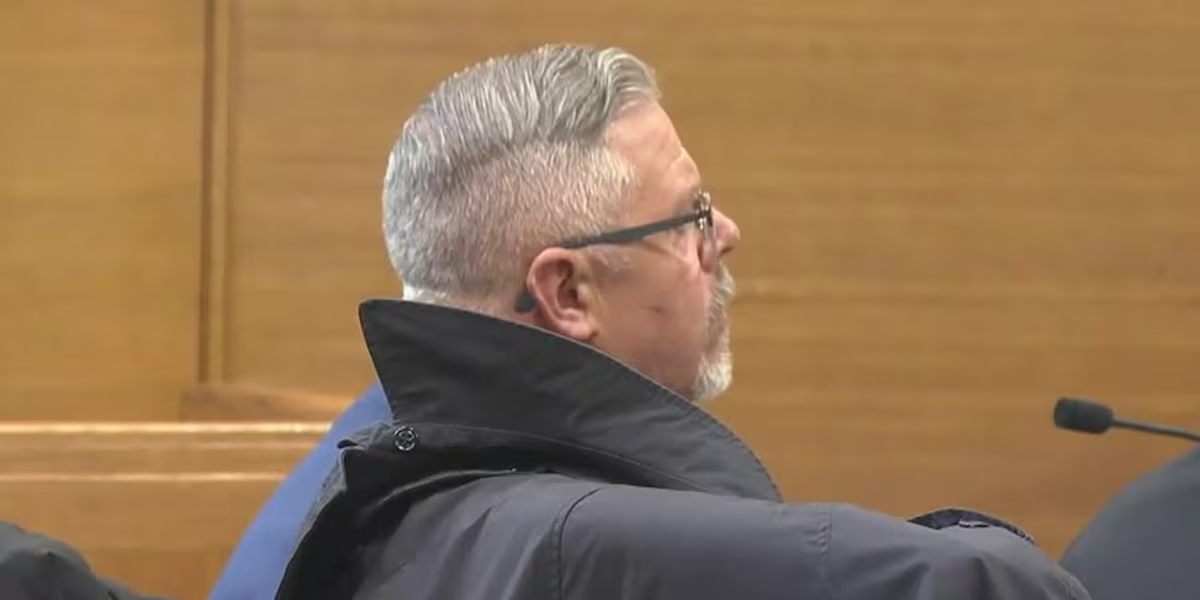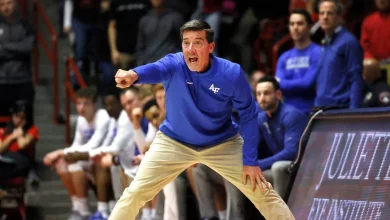Rose Bowl files lawsuit accusing UCLA of trying to move football games to SoFi Stadium

The City of Pasadena and the Rose Bowl Operating Co. filed a lawsuit Wednesday night to force UCLA to honor the remaining two decades of its contract and keep Bruins football games in the historic stadium through 2044.
The complaint, filed in Los Angeles County Superior Court against UCLA and the University of California Regents, alleges that the university has been “unequivocally expressing its intent to abandon the Rose Bowl Stadium and relocate its home football games to SoFi Stadium in Inglewood,” calling it “a profound betrayal of trust.”
UCLA’s lease runs through June 30, 2044, and Pasadena officials say taxpayers have invested more than $150 million in stadium renovations while recently refinancing an additional $130 million in bonds for additional capital improvements.
“This lawsuit arises in an era when money too often eclipses meaning and the pursuit of profit threatens to erase the very traditions that breathe life into institutions,” the filing reads.
“Some commitments are too fundamental to be traded away.”
The filing alleges that UCLA, after years of public assurances that it is staying, has now “chosen to disregard those promises” and has formally notified the plaintiffs that it is “moving on” and that “there’s no way we’re staying long term.”
“While we continue to evaluate the long-term arrangement for UCLA football home games, no decision has been made,” Mary Osako, UCLA vice chancellor for strategic communications, said in a statement to The Times.
Although UCLA has yet to file a formal response to the lawsuit, the university disputed the allegations in an exhibit included in the filing. In a letter to Pasadena’s attorney, Nima Mohebbi, UCLA outside counsel David L. Schrader wrote in March that the university has not violated the agreement and that “preliminary discussions” that contemplate a move “do not constitute a material breach for which RBOC would be entitled to a legal or equitable remedy.”
Schrader wrote that UCLA “continues to evaluate strategic goals and how to be fiscally responsible and best fulfill its mission.”
The lawsuit asks for a court order that requires UCLA to honor the entirety of its lease.
The filing contends that it would be devastating to Pasadena and the stadium were UCLA to violate the agreement, that the harm caused to the city and its residents “could easily exceed a billion dollars [or more],” and that monetary damages could never truly remedy UCLA’s conduct.
UCLA quarterback Nico Iamaleava jogs off the field after a 42-37 win over Penn State at the Rose Bowl on Oct. 4.
(Gina Ferazzi / Los Angeles Times)
Russell Korobkin, a professor in the UCLA School of Law who specializes in contracts and negotiation, said the lawsuit appeared to be a preemptive move by the Rose Bowl to prevent UCLA from simply making a payout as part of a move to a new football home.
“The Rose Bowl is saying, by filing the suit, ‘We don’t want your money, we’re going to try to get a court to order you to stay and play at the Rose Bowl,’” Korobkin said. “So that really seems to be ultimately what’s at stake here. One can’t answer this question with complete confidence, but it would just be my prediction that they will not be able to get a specific performance order, that they could probably only recover monetary damages” from UCLA.
An order requiring UCLA to remain at the Rose Bowl could be granted, Korobkin said, “if you can prove that monetary damages would be inadequate to compensate you for your harm, and so the Rose Bowl people put this in the contract, insisted on this in the contract, to help their argument to the court that monetary damages would be inadequate here, but that statement is not legally binding on the court — that is, the court still has to independently decide if that’s true.”
Korobkin said one aspect of the case that makes it different from other breach-of-contract situations is the involvement of a government entity — the City of Pasadena — which could complicate efforts to reach a negotiated settlement.
“They point out in their complaint that if UCLA were to leave, they not only lose revenue, but they lose sort of prestige and also sort of surrounding businesses and other entities in Pasadena, people who pay taxes in Pasadena, people who vote in Pasadena, would be hurt by this and that the Rose Bowl cares about those people as well, right?” Korobkin said.
“If the Rose Bowl were a privately held entity, I would feel pretty confident that [a settlement] would be the likely result, but given that it’s owned by the public and it has this broader range of interests and concerns, it doesn’t seem certain to me — although it’s still possible.”
Home attendance at a stadium located 26 miles from campus has been a deepening concern in recent seasons for UCLA. The team has averaged 35,253 fans for its four home games this season, putting it on track for an all-time low at the Rose Bowl.
The Bruins’ five worst home season-attendance figures since moving to the Rose Bowl in 1982 have come over the last five seasons not interrupted by COVID-19, including 46,805 in 2024. That figure ranked 16th among the 18 Big Ten Conference teams, ahead of only Maryland and Northwestern, which was playing at a temporary lakeside stadium seating just 12,023.





